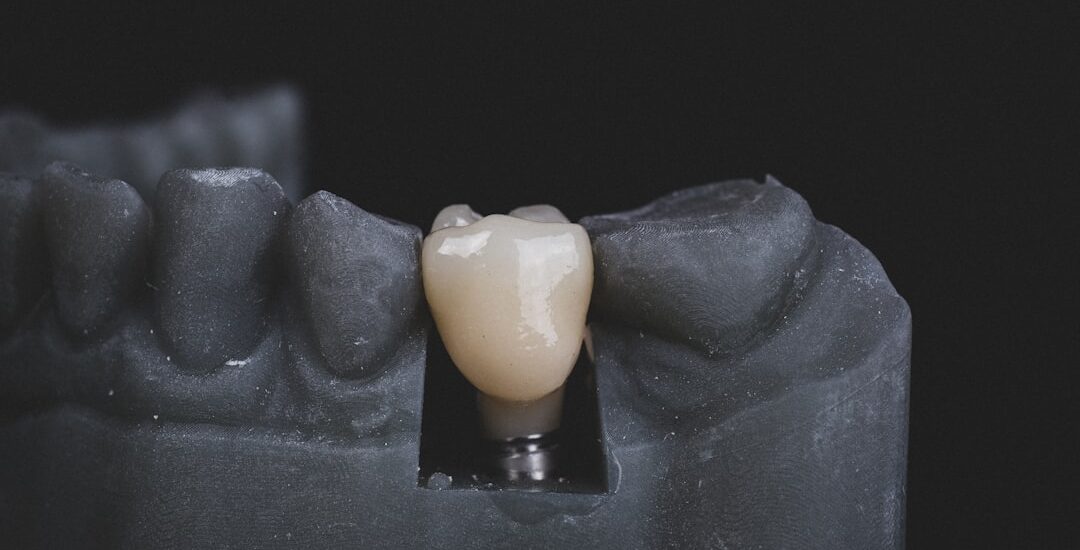Medicare is a federal health insurance program that provides coverage for individuals who are 65 years of age or older, as well as for some younger people with disabilities. It is divided into several parts, each covering different aspects of healthcare. Part A covers hospital stays, skilled nursing facility care, hospice care, and some home health care. Part B covers medical services such as doctor visits, outpatient care, and preventive services. Part D covers prescription drugs, and Medicare Advantage plans (Part C) are offered by private companies approved by Medicare and provide all Part A and Part B benefits.
When it comes to dental coverage, Medicare has limited benefits. Original Medicare (Part A and Part B) does not cover routine dental care, such as cleanings, fillings, extractions, dentures, or dental implants. However, there are some exceptions, such as if a dental procedure is necessary as part of a covered medical treatment, like jaw reconstruction following an accident. In these cases, Medicare may cover the dental procedure as part of the overall medical treatment.
Overall, it’s important for Medicare beneficiaries to understand that while Medicare provides comprehensive coverage for many healthcare needs, it does not provide extensive coverage for dental care, including dental implants. This can be a significant concern for individuals who require dental implants to improve their oral health and overall quality of life.
Key Takeaways
- Medicare typically does not cover dental implants, as it is considered a dental procedure
- The cost of dental implants can be high, with out-of-pocket expenses for Medicare beneficiaries
- Alternative options for dental implant coverage may include dental discount plans or dental insurance
- Some Medicare Advantage plans may offer limited coverage for dental implants
- Dental implants are important for Medicare beneficiaries’ overall health and well-being, as they can improve chewing and speech abilities
Dental Implant Costs and Coverage
Dental implants are a popular and effective way to replace missing teeth and restore oral function. They are titanium posts that are surgically placed into the jawbone and act as artificial tooth roots to support replacement teeth. While dental implants can greatly improve a person’s ability to eat, speak, and smile with confidence, they can also come with a hefty price tag.
The cost of dental implants can vary depending on several factors, including the number of implants needed, the type of implant used, the location of the dental practice, and any additional procedures that may be required, such as bone grafting or sinus lifts. On average, the cost of a single dental implant can range from $1,000 to $3,000, and the total cost for multiple implants can add up quickly.
Unfortunately, dental implant coverage under Medicare is limited. As previously mentioned, Original Medicare does not cover routine dental care or dental implants. This means that Medicare beneficiaries who require dental implants may have to pay for the procedure out of pocket, which can be a significant financial burden for many individuals on a fixed income.
Alternative Options for Dental Implant Coverage
Given the limited coverage for dental implants under Medicare, many beneficiaries may be wondering if there are alternative options available to help offset the cost of this important dental procedure. While Medicare itself does not provide comprehensive coverage for dental implants, there are other avenues that beneficiaries can explore to help make dental implants more affordable.
One option is to consider purchasing a standalone dental insurance plan. These plans are offered by private insurance companies and can provide coverage for a wide range of dental services, including dental implants. However, it’s important to carefully review the details of the plan to understand what is covered, any waiting periods for coverage to begin, and any annual or lifetime maximums on benefits.
Another alternative is to look into discount dental plans, which are membership-based programs that offer discounted rates on various dental services, including dental implants. While not insurance, these plans can provide significant savings on out-of-pocket costs for dental care. Additionally, some dental practices may offer in-house financing or payment plans to help make dental implants more affordable for patients.
Medicare Advantage Plans and Dental Implants
| Medicare Advantage Plans and Dental Implants | |
|---|---|
| Number of Medicare Advantage Plans covering Dental Implants | 78 |
| Percentage of Medicare Advantage Plans covering Dental Implants | 42% |
| Average cost of Dental Implants under Medicare Advantage Plans | 2,500 |
| Number of people enrolled in Medicare Advantage Plans with Dental Implant coverage | 1,200,000 |
Medicare Advantage plans, also known as Medicare Part C, are offered by private insurance companies approved by Medicare. These plans provide all the benefits of Original Medicare (Part A and Part B) and often include additional benefits such as prescription drug coverage, vision care, hearing aids, and dental care.
While Medicare Advantage plans have the flexibility to offer more comprehensive dental coverage than Original Medicare, it’s important to note that not all plans include coverage for dental implants. Some plans may offer coverage for basic dental services such as cleanings and fillings but may not cover more extensive procedures like dental implants.
It’s crucial for Medicare beneficiaries who are considering enrolling in a Medicare Advantage plan to carefully review the plan’s benefits and coverage options related to dental care, including dental implants. Comparing different plans and understanding the specifics of each plan’s dental coverage can help beneficiaries make an informed decision about which plan best meets their oral health needs.
Importance of Dental Implants for Medicare Beneficiaries
For many Medicare beneficiaries, dental implants can play a crucial role in maintaining their oral health and overall well-being. Missing teeth can lead to difficulties with eating and speaking, as well as self-consciousness about one’s appearance. Dental implants offer a long-term solution to these challenges by providing a stable and natural-looking replacement for missing teeth.
Furthermore, oral health is closely linked to overall health, and untreated dental issues can contribute to other health problems such as diabetes, heart disease, and respiratory infections. By addressing missing teeth with dental implants, Medicare beneficiaries can improve their oral health and reduce the risk of developing related health issues.
Additionally, many Medicare beneficiaries lead active lifestyles and want to continue enjoying their favorite foods and activities without limitations caused by missing teeth. Dental implants can provide the stability and functionality needed to confidently engage in social gatherings and maintain an active lifestyle well into retirement.
Tips for Navigating Medicare and Dental Implant Coverage

Navigating the complexities of Medicare and dental implant coverage can be overwhelming for many beneficiaries. However, there are several tips that can help individuals make informed decisions about their oral health care needs within the scope of their Medicare coverage.
First and foremost, it’s important for Medicare beneficiaries to educate themselves about their specific Medicare plan and its limitations regarding dental coverage. Understanding what is covered under Original Medicare versus Medicare Advantage plans can help individuals assess their options for obtaining coverage for dental implants.
Additionally, beneficiaries should consider exploring alternative options for dental implant coverage, such as standalone dental insurance plans or discount dental plans. Researching different insurance options and comparing costs and benefits can help individuals find a solution that best fits their budget and oral health needs.
Furthermore, consulting with a trusted dentist who has experience working with Medicare patients can provide valuable guidance on treatment options and potential financial assistance programs. Dentists can also help patients navigate the process of obtaining pre-authorization for medically necessary dental procedures that may be covered under Medicare.
The Future of Dental Implant Coverage in Medicare
As the population continues to age and the demand for dental implants grows among older adults, there is increasing awareness of the need for expanded dental coverage under Medicare. Advocacy efforts are underway to push for policy changes that would include more comprehensive dental benefits within the scope of Medicare coverage.
In recent years, there has been growing support for legislative proposals aimed at expanding Medicare to include coverage for routine dental care and more extensive procedures such as dental implants. These efforts recognize the importance of oral health in overall well-being and seek to address the financial barriers that many older adults face in accessing necessary dental treatments.
While progress has been made in raising awareness about the need for improved dental coverage under Medicare, there is still work to be done in advocating for policy changes at the federal level. It’s important for individuals and organizations to continue advocating for expanded dental benefits within Medicare to ensure that older adults have access to the oral health care they need to maintain a high quality of life in their later years.
In conclusion, understanding Medicare coverage and navigating options for dental implant coverage is essential for Medicare beneficiaries who require this important dental procedure. While current Medicare benefits have limitations when it comes to covering dental implants, there are alternative options available to help offset the cost of this treatment. As awareness grows about the importance of oral health in overall well-being, there is hope for expanded dental coverage within Medicare in the future. By staying informed about available options and advocating for improved benefits, individuals can work towards securing access to essential oral health care through their Medicare coverage.
If you’re interested in learning more about the holistic approach to dental care and how it relates to Medicare coverage for dental implants, check out this article from Holistic Healing Nook. They offer valuable insights into the connection between overall health and dental treatments, and how Medicare may or may not cover certain procedures. It’s a great resource for anyone looking to explore alternative options for dental care within the Medicare system.
FAQs
What are dental implants?
Dental implants are artificial tooth roots that are placed into the jaw to hold a replacement tooth or bridge. They are a popular and effective long-term solution for people who have lost one or more teeth.
Does Medicare cover dental implants?
No, Medicare does not typically cover dental implants. Medicare Part A and Part B do not cover routine dental care, including most dental procedures and supplies, such as cleanings, fillings, tooth extractions, dentures, dental plates, or other dental devices.
Are there any circumstances in which Medicare might cover dental implants?
In very limited circumstances, Medicare may cover dental services that are integral to a covered procedure. For example, if a dental implant is necessary as part of a jaw reconstruction following an accident, Medicare may cover the cost of the implant as part of the overall treatment.
What are some alternative options for covering the cost of dental implants?
Some Medicare Advantage plans may offer dental coverage that includes dental implants, so it’s worth checking with your plan to see if this is an option. Additionally, some individuals may have dental coverage through a separate dental insurance plan or through a dental discount plan that can help offset the cost of dental implants.
Are there any other government programs that may help cover the cost of dental implants?
Medicaid is a joint federal and state program that may cover dental services, including dental implants, for eligible individuals. Eligibility and coverage vary by state, so it’s important to check with your state’s Medicaid program for more information.





